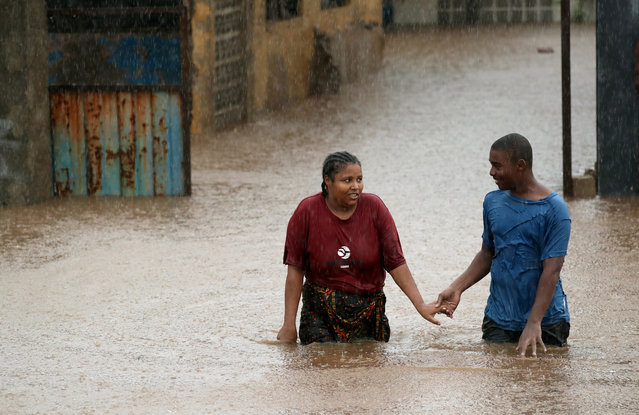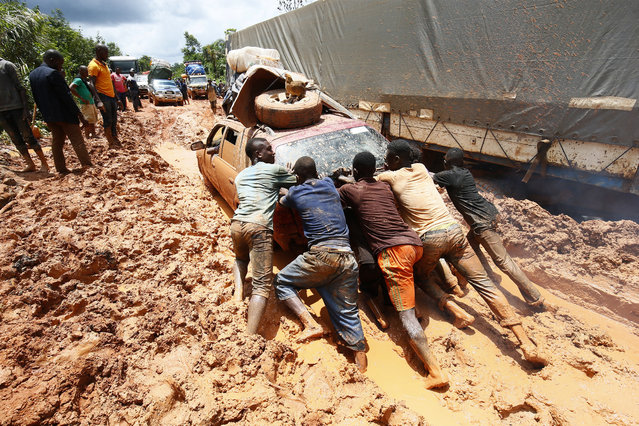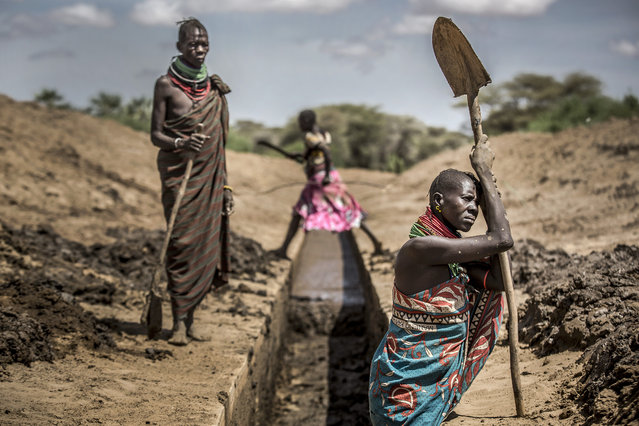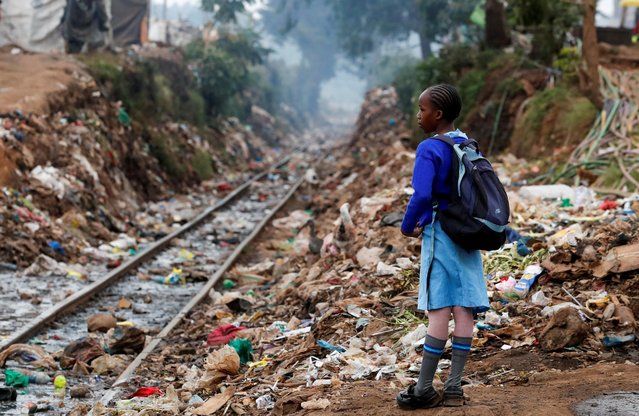
Khadjou Sambe, 25, surfs off the coast of Ngor, Dakar, Senegal, August 18, 2020. Growing up in the coastal capital of Dakar, Sambe never saw a Black woman surfing the Atlantic swells. As Senegal's first female professional surfer, Sambe is now inspiring the next generation to defy cultural norms and take to the waves as a surfing coach for local girls. “When I am in the water I feel something extraordinary, something special in my heart”, Sambe said. (Photo by Zohra Bensemra/Reuters)








